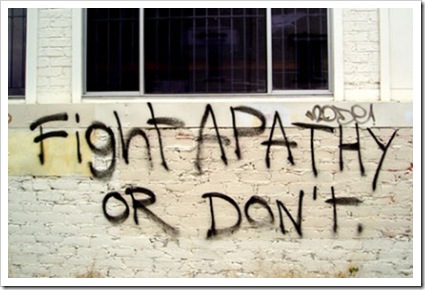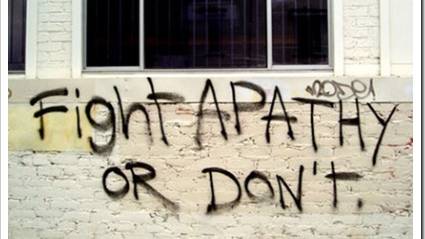Hegemony and Propaganda: The Importance of Trivialisation in Cementing Social Control
Source: globalresearch.ca
Knowledge in modern societies has expanded to the point whereby specialisms and sub-specialisms are the norm. It is just not possible for one person to have in-depth knowledge of every discipline. We must rely on others to convey such knowledge, usually in relatively simplistic terms. Most of us have to take at face value many of the ideas and concepts that we are bombarded with in this age of instant, mass communications and information overload.
People tend to like simplicity. In many instances, not possessing sufficient expertise on matters, they require it. They require easily manageable packages of knowledge, and these packages become taken for granted stocks of ‘common sense’ knowledge that enable them to cope, however faulty or misrepresented that ‘knowledge’ may be.
Politicians and the media also recognise people’s need for simplicity. And here lies the problem, particularly in an increasingly complex and confusing world. In order to rally the masses around certain ideas and to make things ‘simple’ for them, both politicians and the media have to a large extent taken their cue from Edward Bernays, the father of advertising, propaganda and public relations. This is where simplicity morphs into manipulation.
Bernays knew how to manipulate groups of people and get the masses hooked on the products and messages of modern society. We are now all subjected to this type of manipulation each and every day by the incessant bombardment of commercials.
It was the late US academic Rick Roderick who noted the trend towards the banality, simplification and trivialisation that the ad industry excels in is now prolific throughout society. He referred to a rampant phenomenon of important issues and problems being reduced to a fad of some kind through continuous repetition. For example, political debates that are seemingly in deadlock like gay rights and abortion issues, although important, have become almost a pointless debate. The same few points are being thrown around so often that they’ve almost become a fad. This doesn’t mean that the issues themselves aren’t important; it just means that they’ve been reduced to something resembling sound-bite debates.
It can get to the point whereby people simply stop caring about it all. In the face of so many different sides and so many different movements all locked in endless debates, it can be easy for a kind of apathy and inaction to kick in among the wider population.
Indeed, many issues have been reduced to media-friendly slogans. For example, decades of serious writing on feminism were overtaken by the Spice Girls shouting the slogan ‘girl power’ at every available opportunity. A serious issue became used as a commercial ploy to sell music. What did girl power mean? Who cared at the time: just shout it out.
Barak Obama relied on the mantra ‘hope and change’, which means everything and nothing at the same time. While in some cases sound-bite sayings may be making a serious point, they are repeated over and over again to the point where they merely become meaningless, feel-good rhetoric.
And then there are all those TV commercials on English language channels in India, which reduce everything to a lowest common denominator selling point: ‘white is in dark is out’ (why is this phrase pertaining to skin lightening not considered racist in India?), ‘because you’re worth it’ (self esteem reduced to wearing nail varnish or lipstick), ‘its very, very sexy’ (the nature of sexuality reduced to the effects of a deodorant). Complex issues are merely commodity forms and reduced to brand identities for sale in the market place.
Hand in hand with all of this goes ridicule and cynicism, whereby, if serious issues are not banal through sound-bite repetition, they are made the butt of jokes.
Rick Roderick liked to refer to an old TV show in the US to highlight how society encourages ridicule, trivialization and acceptance of how things are (but should not be). ‘Laverne and Shirley’ ran from 1976 to 1983. Roderick stated that Laverne and Shirley work in Milwaukee in a beer factory. It could therefore have been a socialist realist film, but it was a sitcom. They have got two friends who are stupid and ugly (according to Roderick). Basically, their life is no good. But this is a comedy. All the troubles that working class life often involves are just reduced to banality, just the common rubble of triviality and little one-line jokes.
A similar phenomenon can be seen in Britain today via the demonisation and mocking of some of the poorest sections of the British working class by the mainstream media and various social commentators. Regarded as ‘chavs’, they are their lives are stigmatized, ridiculed and trivialised.
Roderick also discusses the notion that John F Kennedy (JFK) was killed in a coup d’état and the US government and that the US has been run secretly ever since. That may or may not be true, but by the time we have had a hundred books and numerous movies on JFK, people tend to switch off, shrug their shoulders and say well it may or may not be the case, but what does it really matter? It’s become banal. For Roderick, this is just another example of how you can take matters of ultimate human importance and turn them into banality.
[...]
Read the full article at: globalresearch.ca























